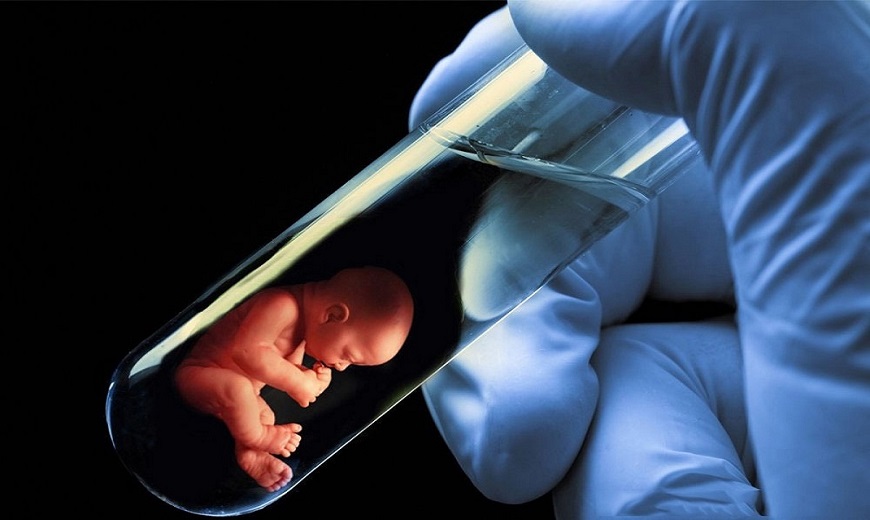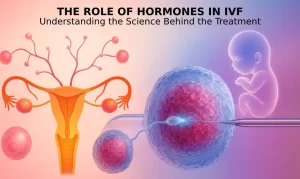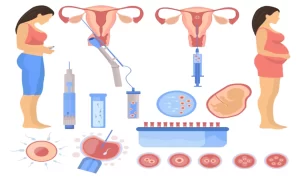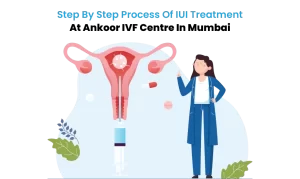The journey to parenthood can be a challenging and emotional experience for many couples, particularly for those facing infertility issues. For some, assisted reproductive technologies (ART) like in vitro fertilization (IVF) offer hope when natural conception is not an option. IVF, often referred to as “test tube baby” treatment, has helped millions of couples around the world achieve their dream of becoming parents. But one of the most common questions couples have been: How long does it take for a test tube baby to be conceived?
In this blog, we’ll explore the timeline of the IVF process and how long it typically takes for a test tube baby to be conceived. If you’re considering IVF, this guide will help you understand what to expect during your treatment and the role a Test Tube Baby Centre in Mumbai can play in your fertility journey.
Step 1: Ovarian Stimulation (10-14 Days)
The first stage of IVF is ovarian stimulation, which usually takes about 10 to 14 days. During this period, the woman will take fertility injections that help her ovaries produce multiple eggs instead of just one. The clinic will monitor the development of the eggs with ultrasound scans and blood tests. The goal is to retrieve mature eggs that can be fertilized.
The duration of ovarian stimulation may vary depending on the individual’s response to the medication, and your fertility doctor at a Test Tube Baby Centre Mumbai will adjust the treatment plan accordingly.
Step 2: Egg Retrieval (1 Day)
Once the eggs are ready for retrieval, a minor surgical procedure is performed to collect the eggs from the ovaries. This procedure typically takes about 20-30 minutes and is done under sedation, so it is painless. After egg retrieval, the woman will rest for a short time before being discharged.
Step 3: Fertilization and Embryo Culture (3-5 Days)
The eggs are then fertilized with sperm in the laboratory. If the sperm quality is an issue, intracytoplasmic sperm injection (ICSI) may be used, where a single sperm is injected directly into an egg. After fertilization, the embryos are cultured for several days, typically 3 to 5 days, to allow them to develop and reach a suitable stage for transfer.
During this period, the embryos are monitored closely by embryologists to assess their development. Only the healthiest embryos are selected for transfer. The number of embryos transferred will depend on the patient’s age, the quality of the embryos, and other factors.
Step 4: Embryo Transfer (1 Day)
Embryo transfer is a simple and painless procedure where one or more healthy embryos are placed into the woman’s uterus. This is done under ultrasound guidance, and there is no need for anesthesia. The procedure typically takes only 15-20 minutes.
After the transfer, the woman may experience mild cramping or spotting, but this is usually temporary. Following embryo transfer, the patient will be advised to rest for a short period before resuming normal activities.
Step 5: Pregnancy Test (10-14 Days Post Transfer)
After embryo transfer, the final step is to wait for the pregnancy test. This test is usually conducted 10 to 14 days after the embryo transfer to check for the presence of the pregnancy hormone (hCG) in the blood. It’s important to remember that the test results at this stage are not always conclusive, as some early pregnancies may not be detectable immediately.
If the pregnancy test is positive, an ultrasound will be scheduled after a few weeks to confirm the pregnancy and check for a heartbeat.
Understanding the Test Tube Baby Process
IVF is a complex process that involves several key steps, each of which contributes to the overall timeline. The process starts with ovarian stimulation, where fertility medications are used to encourage the ovaries to produce multiple eggs. This is followed by egg retrieval, fertilization in the laboratory, and finally, embryo transfer.
Step 1: Ovarian Stimulation (10-14 Days)
The first stage of IVF is ovarian stimulation, which usually takes about 10 to 14 days. During this period, the woman will take fertility injections that help her ovaries produce multiple eggs instead of just one. The clinic will monitor the development of the eggs with ultrasound scans and blood tests. The goal is to retrieve mature eggs that can be fertilized.
The duration of ovarian stimulation may vary depending on the individual’s response to the medication, and your fertility doctor at a Test Tube Baby Centre Mumbai will adjust the treatment plan accordingly.
Step 2: Egg Retrieval (1 Day)
Once the eggs are ready for retrieval, a minor surgical procedure is performed to collect the eggs from the ovaries. This procedure typically takes about 20-30 minutes and is done under sedation, so it is painless. After egg retrieval, the woman will rest for a short time before being discharged.
Step 3: Fertilization and Embryo Culture (3-5 Days)
The eggs are then fertilized with sperm in the laboratory. If the sperm quality is an issue, intracytoplasmic sperm injection (ICSI) may be used, where a single sperm is injected directly into an egg. After fertilization, the embryos are cultured for several days, typically 3 to 5 days, to allow them to develop and reach a suitable stage for transfer.
During this period, the embryos are monitored closely by embryologists to assess their development. Only the healthiest embryos are selected for transfer. The number of embryos transferred will depend on the patient’s age, the quality of the embryos, and other factors.
Step 4: Embryo Transfer (1 Day)
Embryo transfer is a simple and painless procedure where one or more healthy embryos are placed into the woman’s uterus. This is done under ultrasound guidance, and there is no need for anesthesia. The procedure typically takes only 15-20 minutes.
After the transfer, the woman may experience mild cramping or spotting, but this is usually temporary. Following embryo transfer, the patient will be advised to rest for a short period before resuming normal activities.
Step 5: Pregnancy Test (10-14 Days Post Transfer)
After embryo transfer, the final step is to wait for the pregnancy test. This test is usually conducted 10 to 14 days after the embryo transfer to check for the presence of the pregnancy hormone (hCG) in the blood. It’s important to remember that the test results at this stage are not always conclusive, as some early pregnancies may not be detectable immediately.
If the pregnancy test is positive, an ultrasound will be scheduled after a few weeks to confirm the pregnancy and check for a heartbeat.
How Long Does It Take to Get Pregnant with IVF?
The total duration of the IVF process from initial consultation to embryo transfer can vary but typically takes about 4 to 6 weeks. However, it’s important to note that IVF success rates depend on several factors, including the woman’s age, overall health, the quality of the eggs and sperm, and the clinic’s expertise. In some cases, it may take more than one IVF cycle to achieve a successful pregnancy.
It is important to consult with an experienced team at a Test Tube Baby Centre in Mumbai like Ankoor Fertility Clinic, which specializes in IVF and offers personalized care to ensure the best possible outcomes for couples. The clinic provides comprehensive treatment and guidance, ensuring each couple has the support they need throughout their IVF journey.
Factors That Can Affect IVF Success and Timing
While the IVF process itself is generally predictable, the time it takes to conceive a test tube baby can be influenced by a variety of factors, including:
Age: Women over the age of 35 may have lower success rates with IVF.
Egg Quality: The quality and number of eggs retrieved can impact the IVF outcome.
Sperm Quality: The sperm’s ability to fertilize the egg plays a crucial role in successful conception.
Embryo Quality: The health and development of the embryos are essential for implantation.
Underlying Medical Conditions: Conditions like PCOS, endometriosis, or uterine issues can affect IVF success.
Final Thoughts
Conceiving a test tube baby is a step-by-step process that usually takes around 4 to 6 weeks, but success is not guaranteed in a single cycle. Each person’s journey is unique, and factors such as age, health, and fertility issues play a significant role in the outcome. Consulting with a renowned Test Tube Baby Centre Mumbai like Ankoor Fertility Clinic can help provide clarity and guide you through each stage of the IVF process. With personalized care, advanced technology, and a supportive environment, couples can increase their chances of a successful pregnancy.







